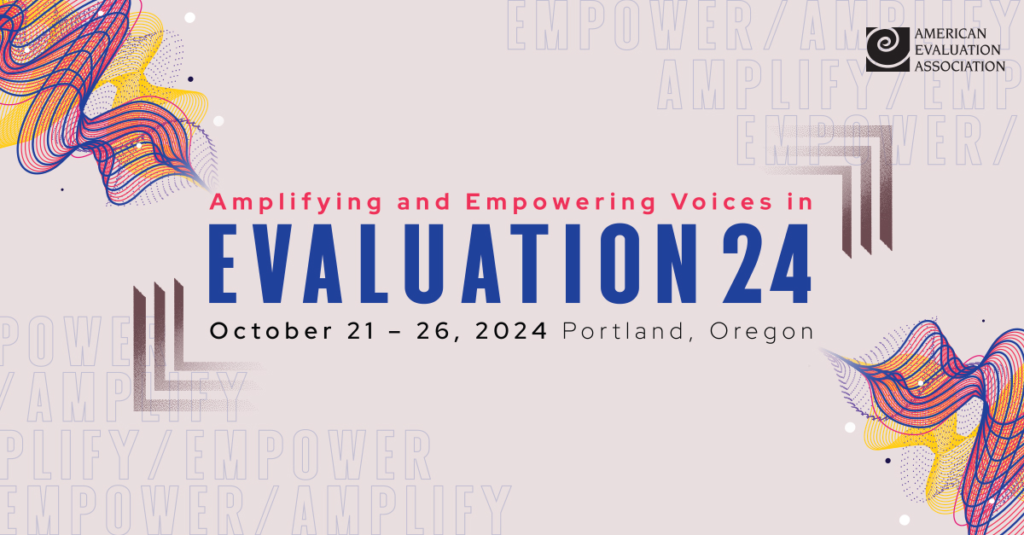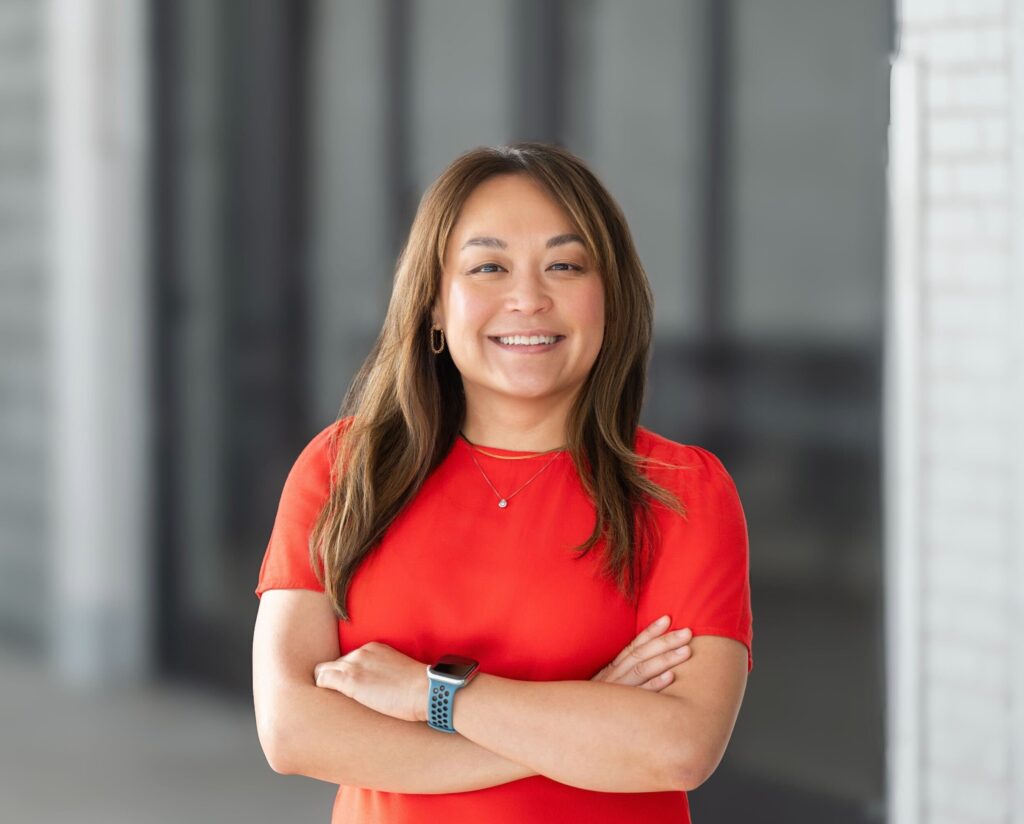We are Headed to #EVAL24!
Lindsay Hanson, Christina Kuo, Katie Fox, and Misty Blue are headed to the American Evaluation Association’s annual conference this year and the team is excited to engage with, and learn from, others grappling with ways of amplifying and empowering voices in evaluation.
Lindsay, Christina, Katie, and Misty look forward to connecting and hope you will join us on Friday, October 25 for two sessions, one in the morning and one in the afternoon. Katie is co-facilitating a session that explores centering community organizers’ ways of knowing in learning and evaluation projects. Misty is leading a session about embracing Indigenous leadership and designing inclusive studies that drive change. More details about each session are available below.

Katie Fox, MPPA, MRP (she/her/hers) – Senior Strategist, Grassroots Solutions and Gigi Barsoum, PhD, MPH (she/her/hers) – Principal, Barsoum Policy Consulting
“Centering community organizers’ ways of knowing in learning and evaluation projects”
Stream: Social and Cultural Impact
Friday, October 25, 2024
11:30 AM – 12:30 PM PST
Location: B113-114
Abstract:
In recent years, community organizing has garnered increased attention and investment as funders recognize its efficacy in building power and driving transformative change. As interest in organizing grows, foundations engage evaluators to document and understand the contributions of organizers and facilitate learning about organizing work.
Ongoing learning is core to the practice of community organizing, but how organizers learn – their ways of knowing – are relational and experiential with a strong storytelling and oral tradition. These practices often diverge from the dominant learning approaches in the evaluation and philanthropic sectors which emphasize the written word, quantitative measures, and evaluative expertise. The disconnect between learning practices, coupled with the inherent power imbalance between funders and organizers, often compels organizers to adapt to funders’ learning and evaluation priorities and practices, even when the aim of learning projects is to support organizer learning.
This session will share findings from the Organizer Learning Project, a field-building project that seeks to make visible how organizers learn and grow and to bridge the divide between organizer and funder learning practices. Session attendees will leave with a deeper understanding of the unique learning practices and culture in community organizing and concrete ideas for improving support for organizer learning and evaluation.
Misty Blue, MPH – Senior Strategist-Evaluation, Grassroots Solutions
“Embracing Indigenous Leadership: Designing Inclusive Studies that Drive Change”
Stream: International Evaluation, Diversity, and Specific Populations
Friday, October 25, 2024
3:45 PM – 4:45 PM PST
Location: E141-143
Abstract:
Drawing upon diverse contexts and disciplines, this session explores the integration of Indigenous voices and knowledge within study design through the examination of compelling case studies. By centering Indigenous perspectives, methodologies, I will recall three case studies that demonstrate how evaluation and learning work can embrace and amplify Indigenous leadership to inform strategy and drive change.
In the first case study, I will delve into a collaborative research project between the 11 tribal nations of Minnesota and academic researchers where the presenter assembled a team of Native scholars who have examined the past, present, and future of Tribal-University relations since the University opened in 1851. Within the second case study we will examine a tribal outreach study focused on gaining input and understanding perception from the 12 federally recognized tribes, native organizations and native student body in Michigan about tribal-university relations for Michigan State University. The third case study will detail the design and implementation of a mid-term evaluation that heard directly from grassroots partners working on the frontlines and representing communities impacted by industrial bioenergy developments.
The principles in these case studies push the evaluation and learning field toward the promotion of Indigenous leadership, so we can build toward a more just and equitable research landscape that protects Indigenous sovereignty and paradigms, honors the land and the history it holds, fosters positive social change, and advances collective well-being.



